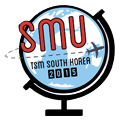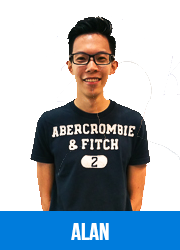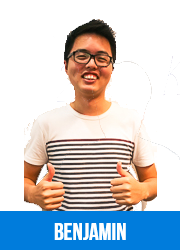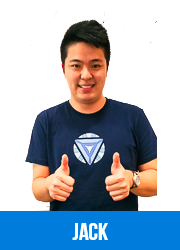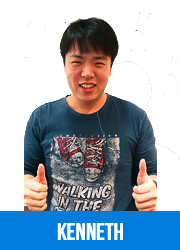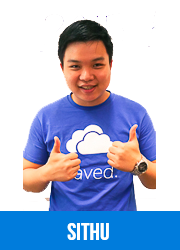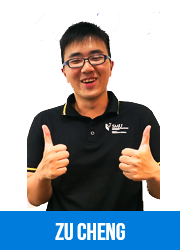1415T2g1 South Korea/Reflection/day2
South Korea
| Day 2 |
Contents
- 1 Day 2: Reflections
- 2 Alan
- 2.1 Quick Introduction of Pristones and Mr. Minhee Cho
- 2.2 Learning Points from Pristones and Mr. Minhee Cho
- 2.3 Quick Introduction of Seoul National University’s Entrepreneurship Major
- 2.4 Learning Points from Seoul National University’s Entrepreneurship Major
- 2.5 Quick Introduction of Korean Business Angel Association
- 2.6 Learning Points from Korean Business Angel Association
- 2.7 Quick Introduction of FuturePlay
- 2.8 Learning Points from FuturePlay
- 3 Benjamin
- 4 Gabriel
- 5 Bifang
- 6 Hosanna
- 7 Jack
- 8 Kenneth
- 9 Leon
- 10 May
- 11 ShaoJun
- 12 Sharon
- 13 ShiMin
- 14 Sithu
- 15 Siying
- 16 Thandar
- 17 ThuHa
- 18 Valerie
- 19 WeiYang
- 20 Zihua
- 21 ZuCheng
Day 2: Reflections
Quick Introduction of Pristones and Mr. Minhee Cho
Learning Points from Pristones and Mr. Minhee Cho
- A start-up gives you greater meaning – if you work for a company, you are merely a ‘part’ of the company. It is difficult for you to make significant changes in a big corporation
- Create a start-up while you are still young – in the current Singapore and Korea’s society, it is less difficult as compared to our parent’s generation to have the basic necessities of life (ie. Food). Furthermore, if you fail in your start-up, you can always pick yourself up and try again as you still have an abundance of time to utilize what you have learned from your mistakes and ensure that you do not make them again.
- Explore the idea first before you have investors – it does not mean that you will need investors to get your start-up going. There are certain things that you can do before you get any investors on board, such as testing the idea, developing the prototype and etc.
- Right idea, right market and right customer – focus on these 3 points which are crucial to the success of a start-up
- Importance of partnership in the start-up scene – Pristones has made several partnerships from its inception such as Platum, Venture Square and beSuccess and these partnerships assisted them to win over their competitors
- AAARR (Acquisition, Activation, Revenue, Retention and Referral) – Funnel concept of growth hacking where you find ways to make your business grow. Place more emphasis on the part of ‘Retention’ as it is difficult to regain customers once you lose them
- A good plan mitigates risks – it is important to have a good plan from the start as making changes to the plan will invite additional risks to the company
Quick Introduction of Seoul National University’s Entrepreneurship Major
Learning Points from Seoul National University’s Entrepreneurship Major
- Learning from experience – since it is not that viable to learn from experience in the start-up community, it is important that you pay attention and learn from professors or guest speakers on their advices when building your own company
- Similarities in the teaching content – having heard from Sulli the content which was thought in class, I now know that the content used to help entrepreneurship and quite similar between Singapore and South Korea
Quick Introduction of Korean Business Angel Association
Learning Points from Korean Business Angel Association
- Fewer restrictions as compared to VCs – In most cases, KBAA and its pool of angel investors does not determine any criteria for the start-ups to adopt, such mandating a time to implement a revenue model for the start-up to start gaining revenue.
- Start-ups experiences the worst times at 3 to 4 years old – Between 3 to 4 years since the inception of the start-up, it is known as the ‘death valley’ as start-ups are experiencing a crunch in terms of cash and establishing itself as a market leader.
- Attractiveness of big conglomerates still overshadows the Korean start-up scene – Mr. Go mentioned that even though the government and the private sector has come up with many initiatives to help start-ups, only 1% of students in each batch of graduating students are interested in creating a start-up. Big brands such as Samsung and LG are still attracting more students due to their prestige and this is a problem which needs to be solved before the trend of start-ups in Korea can move forward.
Quick Introduction of FuturePlay
Learning Points from FuturePlay
- Patents may not protect your product/service – although patents are widely filed in Korea, there are times where big conglomerates utilized loopholes, relationships with government officials and their superior financial prowess to ensure that they receive no punishment from infringement of a patent.
- Importance of understanding a problem – since the C-level officers and board of advisors have experience in creating a start-up, they understand the problems and concerns that entrepreneurs have. By tackling these problems and concerns, FuturePlay has successfully encourage more entrepreneurs to create start-ups in Korea.
From SNU, the main difference between people working in Silicon Valley as compared to most Asian countries pushing for start-ups such as Singapore and Korea is that their failures are proof of their abilities whereas in Asian countries, we look at the end result rather than the journey the individual has gone through causing students to be reluctant to pursue such a path. From KBAA, the main problems in which startups get stuck was that they either had patent issues, marketing problems or legal issues that they are inexperienced in and most of them get stuck when they needed funds to mass produce their products to the market. KBAA assists these startups by providing with funding to tide them over the period. Mr Go also shared an important point that we should start doing startups because in 20 years time, 60% of the stable jobs will be gone and we would be left jobless and would have many responsibilities such as providing for the family which would discourage us from creating a startup. From FuturePlay, we learnt that the patent war is won by whoever has the most money wins and it is really scary reality especially for startups and the only way was to file patents in different countries. We should also be very general when writing the patent to cover a broad spectrum and that we can make money just by considering many use cases for a particular new product and file every single patent that could be sold for a huge sum of money in just a short amount of time.
Pristones
One of the mistakes he shared was in 2010. After launching his application, Club Mix which was a big successful, he had started to imagine of great successful for other ideas. Hence, he started to aggressively try ideas (4 ideas within a span of 1 year) and attempt to go big with them. However, he shared that he had failed to notice that he had lost his focus on the big picture, which was to ensure that the application he created has to solve a real world need. Hence, although his ideas were deployed lived, they all did not reap much profits and success. Because of this, half of his partners left and he was devastated.
This has taught me that as an entrepreneur, it is extremely important to ensure that one does not become complacent and loose one’s focus on the real reason for venturing into the startup market. Careful consideration and analysis of the market is also essential before an idea can materialize as having the supply will not be useful if there is no demand for it. In addition, it is equally important to put one’s heart and soul in to developing the startup and it will not be good if one is managing a startup and juggling studies at the same time. This is because the focus will not be entirely on managing the progress of the startup since time is often wasted on studies too. The next important learning point I learned was he importance of thinking critically. For instance, the founder mentioned that when he first developed rocket punch, there was also a competitor who had the idea and was already in the midst of developing it. Nonetheless, by thinking critically, instead of rushing into developing the application to match the competitor which would have taken a much more longer time, they taught through it and instead conducted a pilot test of the application using free framework’s and analytics tools available (tumbler prototype which was done in 1 day). By doing so, this allowed them to better understand the market base they were dealing with and they were able to beat the competitor in attracting the market base and gaining the patent rights.
Seoul University
The other student presented on his startup which involves the development of a UAV like plane to provide surveillance to help the Christians who were often harassed / attacked by people from ISIs. He shared that his passion for such development grew when he came o be aware of such "bullying" in the country and he hope to make a change. From his statement, it really has led me to realise the power of startups. Although startups may be small, they do have the power to really make a difference in the life of others
.KBAA
Start-ups tend to have process imperfect information and a lack of manpower to ensure that administrative, financial, legal and marketing etc. are conducted well, they are often faced with all sorts of problems coming from everywhere. However, on a brighter note, there are available schemes which helps entrepreneurs leverage on such as KBAA’s matching fund where the government will match an angel investor findings in a potential startup. This is somewhat similar to Singapore where the government also provides such schemes to help start-ups tide through tight financial periods. He also share that the future of KBAA was to form a Tech Incubator Program for Startups (TIPS) which will serve to bring successful startups into TIPS town. This will form a conglomerate of start-up hub which allows ideas to be shared and generated. This TIPS town will thus serve to significantly leapfrog Korea’s startup ecosystem scene.
From his presentation, I learnt that although Korea may have a somewhat different approach in cultivating startups from Singapore, they all have a common goal which is to better equip start-ups with the knowledge and know how to improve and strengthen the startups in each local scene. Such an action has really showed how important and valuable startups are to most countries and that the traditional mindset where start-ups are often encouraged and profitable are slowly being erased. I am definitely confident that in the near future, there will be more and more startups being spin off with the joint efforts from local incubators, VCs and many others and such a scene is really what I am yielding for as this will ensure that most daily problems will be solved fast.
Future Play
Basically, inventors will pitch their product to future play, and if they pass the pitch, they will be allowed to be an Investor In Residence (IIR). As an IIR, they will be exposed to all the resources and help they would need and on top of it, they will be paid a salary, something which similar companies like future play do not provide. Future play will also assist in patenting and handling any administrative and legal issues to ensure that the inventors are being protected. An IIR is allowed to stay for 1 year in which should they spin off to become a company, FuturePlay will get a cut of the revenue share of 15-35% depending on the resources that the IIR has used. If the IIR does not performed up to expectation however, they will be kicked out of the residence.
Steven also shared about some successful spin offs / currently incubated companies such as Podo , Finger Sense and Kono Labs. Podo is a simple to use stick and shoot camera which allows selfies to be taken more easily. Finger Sense on the other hand, leverages on the different usage of fingers and learns the pattern of the user. For instance, the user can assign a nail touch as a double click function and a knuckle touch as a scrolling option hence, there will not be a need for a mouse or stylus anymore when using your smart phone. Kono labs is basically a smart scheduler which allows the user to use plan his time in the most efficient way. It tracks the pattern of the user using analytics. An example would be if the scheduler notices that that you tend to celebrate public holidays by not assigning any work / meetings to public holidays, it will automatically plan your meetings / work to not fall on public holidays.
From this presentation, I had learnt about the importance of patenting an idea immediately so as to ensure that your idea will not be “copied” by competitors. However, although a patent for the idea has been filed the law in Korea is often unable to guarantee fully that the idea is safe since competitors can file for another patent which does the similar function but the language of the patent is phrased in another way. This show that having a patent in Korea is also not really useful as it seems since start-ups whose ideas have been “copied” often still have to back out of their development idea as they lack the capital to sue bigger companies who have “copied” their ideas. Hence I have learned that if I was to set up my own startup, besides patenting the ideas, it is also important to operate stealthily to avoid unwanted competition (“copying”) from other bigger companies who have what it takes to resort to “copying” ideas.
Although we are advised to start early, does not mean we have to hurry and start rushing our ideas. We should think carefully about our ideas and whether the idea actually helps to solve a real world problem. Of course, this is true because ideas which do not solve any problem will not be able to sell well to the people.
I also learn from KBAA and Future Play that often, the parents in South Korea are often not so supportive when their child want to start a business and prefer they work for a big company instead. I think the situation in Singapore and Indonesia is slightly different. Although often they are worried about their child starting a business, they are quite supportive because they believe that in the long-run, having your own company is more sustainable.
Another takeaway is that you should do what you like and enjoy because when you are passionate about something you will be willing to work hard for it. I think every startups have their passion for their ideas. Although the big companies also have their own passion, I think it is more apparent in the smaller companies because every single person is passionate about the idea and willing to work extra hard for their idea to come true.
Pristone
Pristone was founded by Mr Minhee Cho, an extremely experienced entrepreneur from Seoul National University. What makes him different is that he has the highest number of startup failures, which has demonstrated his unwavering perseverance and bravery in Korea which has a culture that is intolerant to failure. Due to this, he imparted an unusually large number of lessons which have impacted me significantly:
- Our generation is fortunate because unlike our parents, most of us are affluent enough such that we do not have to worry about basic needs for survival like food and shelter. This means that we have the freedom to take more risks such as creating a startup instead of taking a stable job as we have a safety net for failure – our families.
- In a company, we are only doing what the company wants and not what we want. This means that unusually ambitious and creative people will feel stifled by the company’s culture and hierarchy. The answer to this is to become our own boss so that we can fully unleash our creativity into tangible products or services.
- Typically, startup founders work long hours and are mentally occupied with their work during the early stages of a startup. This means that they will have to give up a large portion of their social lives with their families, friends and/or significant other (SO). Mr Cho brought up the example of Mark Zuckerberg who sets a fixed amount of time to fully accompany his wife every week without any business related disruptions to maintain a healthy relationship.
- During the early stages of a technology company startup, large amounts of money are needed to fund engineers in order to produce and deliver code in order to develop a minimum viable product that is able to solve a real user need as soon as possible.
- We should try out as many ideas while we are young as our opportunity cost of failing is still low. If we have jobs, we can convert our ideas into side projects so that we can leverage on the company’s resources and network to see if it is a viable idea with potential.
- In a startup, typically there are managers to take care of the business aspect and the engineers to work on the product. However, there are ‘freaks’ – unusually talented people who can somehow manage to do both.
- In today’s technological edge, there are many available frameworks and software available online. One just needs to know how to combine and use these available technologies in order to create their desired product and there is no need to create applications from scratch.
Seoul National University (SNU)
Suli, an SNU student in the entrepreneurship track, together with her friend Peter,an exchange student from Georgia Tech University, hosted a friendly cultural exchange session with us. She mentioned that the part of the reason entrepreneurship boom in 2007 was due to necessity as there were not enough jobs to go around and Korea’s economy was slowing down. To overcome this, the Korean government wanted to cultivate a healthy ecosystem to encourage more startups. I was very impressed by Peter as he was working on a UAV prototype which only costs 2000USD to help Middle Eastern villagers conduct surveillance against ISIS terrorists who regularly raid their villages.
Korean Business Angel Association (KBAA)
Mr Go, the Chairman of KBAA, shared with us the funding schemes available to Korean startups. Currently, KBAA helps to match startups to angel investors and the government will match the funding in a 1:1 ratio, taking a back-end support role. Their most notable scheme is the TIPS accelerator program. In addition, Mr Go shared with us several fun-facts regarding the job economy in Korea:
- In Korea, only 1% of the local students are interested in entrepreneurships.
- The lack of interest is mainly because parents think that going the entrepreneurship route is high risk with a low chance of success, and that students are largely ignorant of the startup support channels and entrepreneurship in general.
- In the near future, 50% of all jobs will change drastically so job prospects are becoming increasingly unstable. Thus, it is predicted that even stable jobs have a lifespan of 10-20 years before the employee is being forced to quit. When this happens, people who are 50-60 year olds usually have no other avenue of employment and often resort to creating startups or franchises. Such individuals usually have difficulty adapting from the passive nature of being an employee to the active nature of being a boss.
Finally, Mr Go imparted some valuable quotes to us:
- If you do what you like, most likely the money will follow.
- Everyone should participate in a startup at least once in their lifetime for the experience.
FuturePlay
We visited futurePlay, which is a startup accelerator that specializes in tech-centric startups. Steven, who is the marketing director, was extremely frank with us and gave some interesting comments regarding the startup scene in Korea:
- Many big Korean companies are not creative (due to their management executives), but its individual engineers are creative. This leads to engineers’ potential and creativity being stifled while they are working in these companies.
- Inventors are identified by their visionary ideas and the ability to execute them. Those which with visionary ideas but no idea on how to execute them are called dreamers, and those with ability to execute those ideas but are unable to generate them are called engineers.
Today, we visited Pristone, TNT Crowd, SNU, KBAA and FuturePlay.
One key takeaway from the visits was that it is really important to make good use of time and quickly start implementing your idea in order to gain a first mover advantage and corner the market. When creating a prototype, using existing resources available to us in order to increase the speed of production actually allows for us to not only quickly evaluate the validity of our solution, but also the allow the market to use our solution first and lock them in. It is often the case whereby there will be similar inventions and products created during the same time frame. Cornering the market first will starve our competitors of the market share and eliminate them, giving us more time to improve on the product afterwards. This same concept also applies to companies such as FuturePlay, where they quickly decided to invest in a company (fastest being 6 hours). They understand the importance of a quickly making decisions on potentially good ideas, in order to prevent competitors the same chances of doing so and to allow FuturePlay to invest and obtain a share of the company. They also push companies quickly, within 2 years to give these companies a higher rate of success.
Pristone
Pristone is located in Seoul National University (SNU) where Mr. Minhee Cho (CEO of Pristone) graduated from. SNU has an entrepreneurship club called SNUSV (Seoul National University Student Venture) which gathers students with interest in entrepreneurship and is a support group for nurturing potential entrepreneurs. Mr. Cho was introduced to SNUSV club in 2002 by a senior and this experience changed his career decision from business management in mechanical engineering to entrepreneurship. He went on to lead the club as president in 2004.
Up to date, he has had a wide range of experience tinkering with potential business ideas which he shared with us.
In June 2003, he joined Samsung as an intern for about 7 month. As a person with overflowing creativity juice, he found that he did not have much freedom in expressing his ideas. Working in a company was also not the fastest and best way for him to earn money. Hence, he decided to take on the path of entrepreneurship.
His first start up, CIZIX, was in October 2005 but it wasn’t successful as they were too optimistic about the product. He then set up Rebi in Feburary 2007, a search engine, but it was disrupted by the release of iPhone and money from investors was scarce at that time. The team later abandoned the project as they could no longer financially support the development as money was needed for technology, research, and maintenance of the application. He went on to develop some other ideas and in December 2010, he set up Pristone with some of his friends who worked with him on previous projects.
One advice he shared was to keep the company name different from the brand name. This allows the company to develop many different applications under one brand.
The first application developed under Pristone was Gamification in March 2011 but they were disappointed as they had high expectations. Also in 2011, they developed 3 other applications (PetsGram, Kaktail, Now) which all were not well received by the public. They reached a panic period as they didn’t know what to do but they kept trying new ideas until the team broke up in February 2012.
Then in August 2012, the remaining founders started getRocket using the Tumblr platform. getRocket was a platform dedicated to job search in start-ups. While they fast-tracked their development of the idea through Tumblr, another company which came up with the same idea before them took 3 months to develop a website for it. This resulted in Pristone gaining first mover advantage. When getRocket was proven to be well received, they moved it to a website and renamed the application to RocketPunch.
I’ve learnt a lot from Mr. Cho and to sum up my learnings, it would be to
- Try various ideas before you decide to start a business. You will need time and resource to try but “if you make time to try, you will find the answer”.
- Take your time to find a product/service that really meets the needs of people. No point rushing and coming up with something that people don’t want or need.
- Solve a real world problem with realistic plan and focus.
- The best time to try starting up a business is when you’re in school.
- When you start testing an idea, you don’t need to fully develop the service. Making use of existing resources and platforms is a way to quickly speed up your development process.
- When a product/service becomes successful, don’t get too ahead of yourself. Updating the service is just as trying as the initial development. If you update your service improperly, you will lose users. Hence, it is important to test the waters to see if the added functionality is what the users really want.
- Partnership is very important. Pristone has had partnership with Venture Square, Platum, and beSuccess which helped them win over their competitors.
- Growth hacking can help to measure success and failure. The funnel concept in growth hacking is coined as AARRR and consists of Acquisition, Activation, Revenue, Retention, and Referral. Out of them all, retention of users is the most difficult.
- Address culture difference in the service. For example, Linkedin requires education graduation date but Koreans go by entrance date as some students take long breaks in school for other activities.
- Having connections is important. Through connection, he got jobs, found co-workers, got information for his business and they were of great support to his growth as an entrepreneur.
- Investors always ask “Why you?”.
Seoul National University (SNU)
We were received by Sulli, a student studying in the entrepreneurship course offered by SNU. She shared with us in a lecture hall about what she learnt in the course. Entrepreneurship first spiked interest in 2007 by the need for more jobs and it’s only recently that universities introduced courses to guide students who are interested in setting up businesses. The course was introduced 3 semesters back and they have received 20 students per semester and currently there are 60 students studying in the course. The course caters modules to help students who already have start-ups or are planning to start a business. They learn about product development from identifying the problem, customer segmentation, to revenue streams. In the course, they also have student organized events and activities like study groups, visits to Silicon Valley, and entrepreneurship training.
The entrepreneurship sector in South Korea is still growing and we expect to see more support in universities for the development of start-ups.
Korean Business Angel Association (KBAA)
We had a short 40 minutes session with KBAA and it’s a relatively new non-profit company that helps start-ups get funding from angel investors and the government. Mr. Go, Chairman of KBAA shared with us that marketing, patent/legal issues, and funding are common problems that start-ups face. Hence, KBAA serves as a platform to build an angel investor network for aspiring entrepreneurs to tap on. The reason why KBAA focuses on angel investor is because angel investors are open to investing in ideas that have yet to be solidified.
KBAA has a Angel Investment Matching Fund where the government provides the entrepreneur with an investment amount that matches the angel investor’s investment. They also have a Tech Incubator Program for Startups (TIPS) which has mentors to guide the newbies. These mentors are usually people who have start-up experience and want to contribute back to the entrepreneurship eco system. This enhances efficiency of finding good startups with good ideas. After the angel investor decides to invest, the government will then review the idea and decide on how much to invest. In addition to the two activities above, KBAA also provides Angel Forum Operations which provides platforms for entrepreneurs to learn from people with experience in the field.
Mr. Go also shared with us that only 1% of students are interested in start-ups. This is because most people aim to enter the big brands like Samsung and LG and many are also unaware about the support for starting up a business. He estimates that in 20 to 30 years, many of our current jobs will become obsolete and by then, people will have to find new way to earn money.
From the sharing session, I believe that the entrepreneurship support in South Korea is getting stronger but there needs to be an increase in awareness of these opportunities.
FuturePlay
FuturePlay is a company builder which makes investment in technology focused companies. They support innovators who have the capability and knowledge to kick start their business. Currently, they have funded many companies with potential to roll out their product/service. He shared with us about a few companies like
- FingerSense - an application that senses different objects and parts of your hand to perform various functions
- WAVE – an application which measures air quality in your current surrounding
- SNAP – interactive mobile prototyping application
and more.. FuturePlay creates patents for these ideas and keeps them until the product/service spins-off in the market. They provide mentorship for entrepreneurs with high potential to disrupt the current technology industry and they have been very successful in nurturing these entrepreneurs.
Like KBAA, FuturePlay is part of the entrepreneurship ecosystem that supports aspiring entrepreneurs and we can look forward to seeing revolutionary technology in the market soon.
Pristone
The CEO of Pristone, MinHee Cho initially wanted to be hold a managerial role in a company. However, his sunbae (high school senior) changed his decision and life. His sunbae bring him to the entrepreneur club. In there, MinHee realise that he is more suitable in doing start up. From his seniors, he learnt that you must always separate your brand name with the company name. That is because you might be creating other products, but if you uses your company name as your band name, then what happen to the new product? He learnt a lot from SNUSV.NET. The reason why he decide to start a company because if you work in a big company, you will always be only a “part” of it. And since you only live once, you should follow your dream. He also mentioned that there’s nothing to lose if you fail to start up. We are not our parents’ generation where we always have to worry if there is food for the family. Also, we can always start again. To him, “Business is ‘High Risk, High Return’, but worth to start”. So even though the risk is high, but the return is high as well. A lot of stuff can be gained through start up.
However, with start up, it will damage relationship. Through his talk, I learnt that the creator of Facebook, Mark Zuckerberg do not have much time for his then-girlfriend. Example he might be called up for work or need to read his emails during their dates. Thus to avoid damaging the relationship, they agreed to set aside 3-4 per week where there will be completely no work disruption.
“Entrepreneurship is the only way to achieve my goal” is something that MinHee mentioned as well. He believed that creativity will be limited if he works in a company. His colleague might just stole his idea without crediting him. He also said that you will not be able to buy a house in Seoul even if you and your wife work 10 years as the top management.
During his presentation, I learnt that 2007 was the worst time to start up in Korea. Because iPhone was launched in 2008 in a lot of countries and 2009 in Korea. Thus there’s a change in technology. Hence there isn’t much money to support start up. He also went into Gom TV in 2008 December. And this is the place where he learnt where he did wrongly.
He stated that you do not need to start a project with money and a real company. You can develop the application during your free time. Example Hotmail was created by 2 engineers during the weekends. However, he also mentioned that you have to start early, else others might have patented the idea.
Towards the end of his presentation he taught us some mistakes that we should avoid. You should look at the market demand and not just do a product that sounds great/cool. You should do on a real world problem. You need to know the market and competitors well. Also, it is important to have the capability such as having engineering in the group. Never do big service at the start. Example Google started off as a search engineer for a school before slowly becoming the current Google that everyone knows. You should also stay focus by doing only 1 project at a time. It is not advisable for students to do start up during school time. Also, always take note of the cultural different between countries. Like LinkedIn isn’t successful in Korea. That’s because LinkedIn asked for date of graduation. However, Korean are more particular with date of entry because the male students will need to go for NS so graduating late.
Seoul National University (SNU)
The student from Seoul National University (SNU) is Suli. Her 1st major is international relationship and her 2nd major is in entrepreneurship. Initially she wasn’t sure what second major to take. Thus when she read the course description for entrepreneurship, she was just trying her luck, which in the end she got it. According to her, there’s only 5 girls in the whole cohort of 60 entrepreneur major student. So it seems like there is lesser Korean females who are interested in starting a business.
Their entrepreneurship major provides various programs such as the programing study group, entrepreneurship training which is a 2D1N student camp. Also, they have something like TSM where they went to Silicon Valley. These program are open to any SNU student regardless of your GPA. I believe this is a good approach as there are some students that might not declare their 2nd major as entrepreneurship but yet has the interest in starting a company.
According to her reflection after going to Silicon Valley, she felt that the people in Silicon Valley are not afraid of failure. When the Korea VC invest in your company, they expect you to success. But it is not easy to success. On the other hand, Silicon Valley people are not afraid of your failure.
Korean Business Angel Association (KBAA)
Their main purpose is to create new jobs and growth. To build a start-up ecosystem which starts from invest to growth to exit and to reinvestment. In the past they did loan type, but they are not moving towards the investment type. Being in the investment type is more beneficial to the start-ups. That’s because if it is under a loan type and if the product fail, the company will be considered as low credible. However, in the new system of investment type, even if they failed, the company can still start a new company.
KBAA provide few programs, such as the Angle Investment Matching Fund where it is a 1 to 1 investing share with an angel investor. The 2nd program is the TIPS (Tech Incubator Programs for Startup). This is the accelerator investment at 100million krw minimum. SMSA provide 900million krw more. Members of this program can get mentoring chance from famous entrepreneur. This program has 68 companies currently and 42Billion krw had been spent. Lastly, there is the Angel Forum Operation where it is a forum for young entrepreneur.
KBAA future plan is to have a “TIPS” Town. They aim to launch this by June/July this year. They gather start-up under the TIPS program and intend to build a 2nd Silicon Valley in Korea.
Unfortunately, these programs are only available for company based in Korea. Mr Go encourages us to start a company because he predict that it will be hard to find a stable job in the future. 50% of jobs will disappear. Thus it will be better to start your own company. According to statistics, start-up don’t success on the first round. In Silicon Valley, you will need around 3 failure before you succeed.
He left us with a very thoughtful phase “When you try to earn money, you wouldn’t earn it. But if you follow your dream, the money will follow you”. I agreed to that because with passion, you can push yourself to work harder and better. Thus the money will eventually follow you.
FuturePlay
It is a start-up that build another start-up. Their early focus is on human-computer interaction. It has 4 phase – innovating, hardware platform, service platform and big data analysis. The big data analysis is to find unmet consumer needs. There’s investors that invest in FuturePlay. And FuturePlay consist of advisors, partners, investors in residence, boosting company and specialist. Investor in residence has a maximum stay of 1 year. And they will receive the same salary as they have at their own company. The boosting is also 1 year max which FuturePlay will decide if this start up can be spin off. If the company got spin off, FuturePlay will get a share of around 15-35%. The amount depend on how much you spend during the stay and how good is the company. Also during this period of time, FuturePlay will return the patent to the company. The speaker also introduce a lot of amazing application that belongs to start up in FuturePlay:
- Smart Wear: a watch that is smart enough to remember what you copied at the origin computer and allow you to paste it when you reach your designated computer.
- Finger Sense: able to make use different part of your finger, such as your nails, finger, and knuckle. Example the knuckle can act as the “right click” on your mobile phone to show additional options
- Huinno: a product that “disrupt healthcare industry through wearable technology”. You just need to wear a watch and place your finger there and they can measure your blood pressure to 95% accuracy. Hospital blood pressure machine can only measure up to 80% accuracy. The company went to 6 VC but got rejected before going to FuturePlay. This acts as a reminder that it’s never easy to do start-ups and it bounds to have challenges. But you should not give up easily.
- Vuno: they can recognize the location of your photo and also tell you the ratings of the restaurant in your photo
- Kono Lab: a smart scheduler which will check the weather, traffic, rating, etc. Example if you will to meet your friend at a certain timing, they will look for a good rating restaurant that is centre to you and your friend. If you do not eat seafood, the scheduler will not arrange for a seafood restaurant.
- SNAP: it is the first spin off from FuturePlay. They know the difficulty in developing based on what the designers want. Thus they come up with this application whereby you just have to connect your laptop and load the image. And if you tilt it, the program will code it out for you.
Through FuturePlay, I learnt that Korea patent are not so useful. They will always go through the loop holes. And if the patent is to go against big company such as Samsung, the Government will support the big companies and ignore the start-ups.
